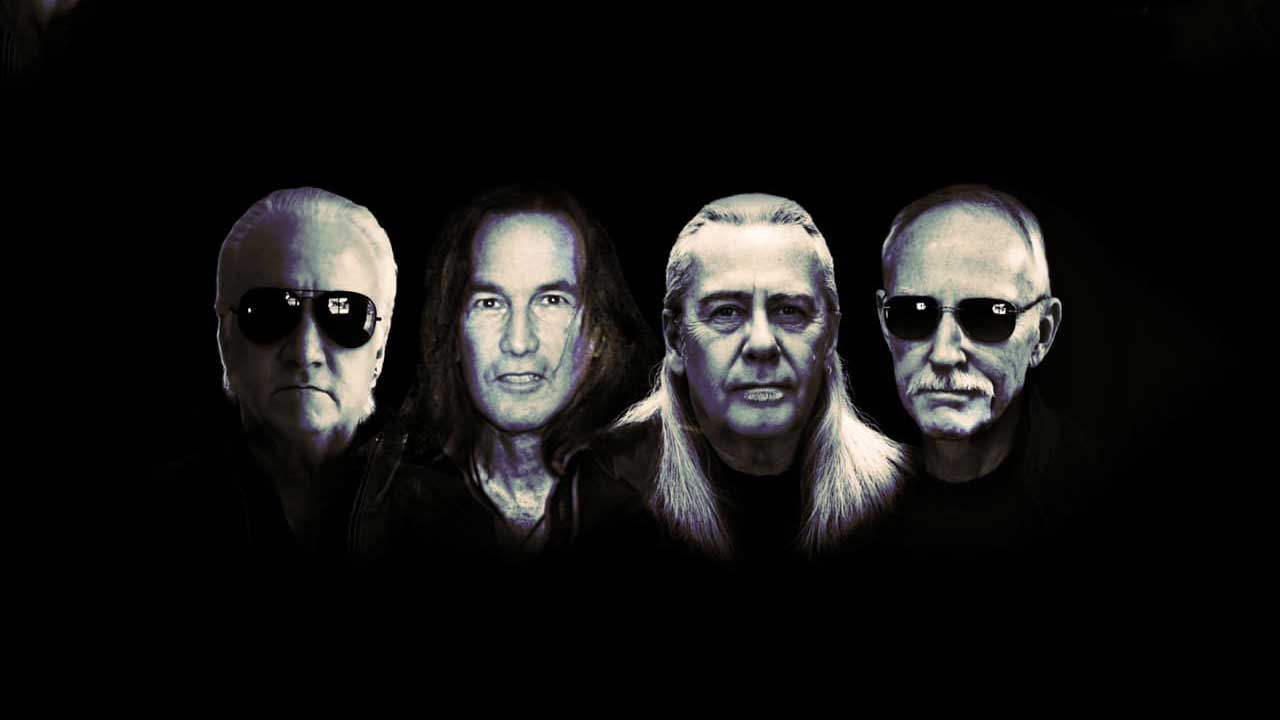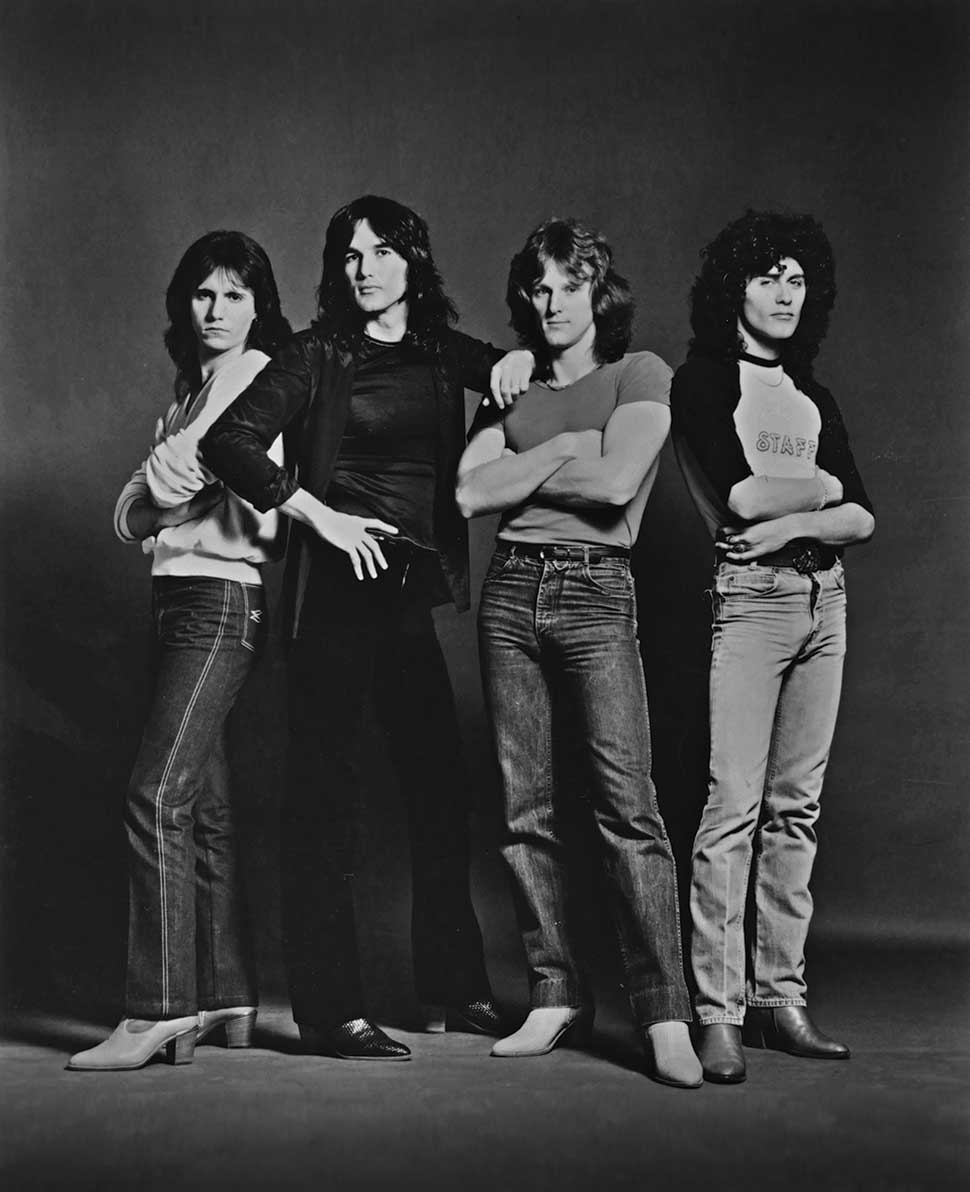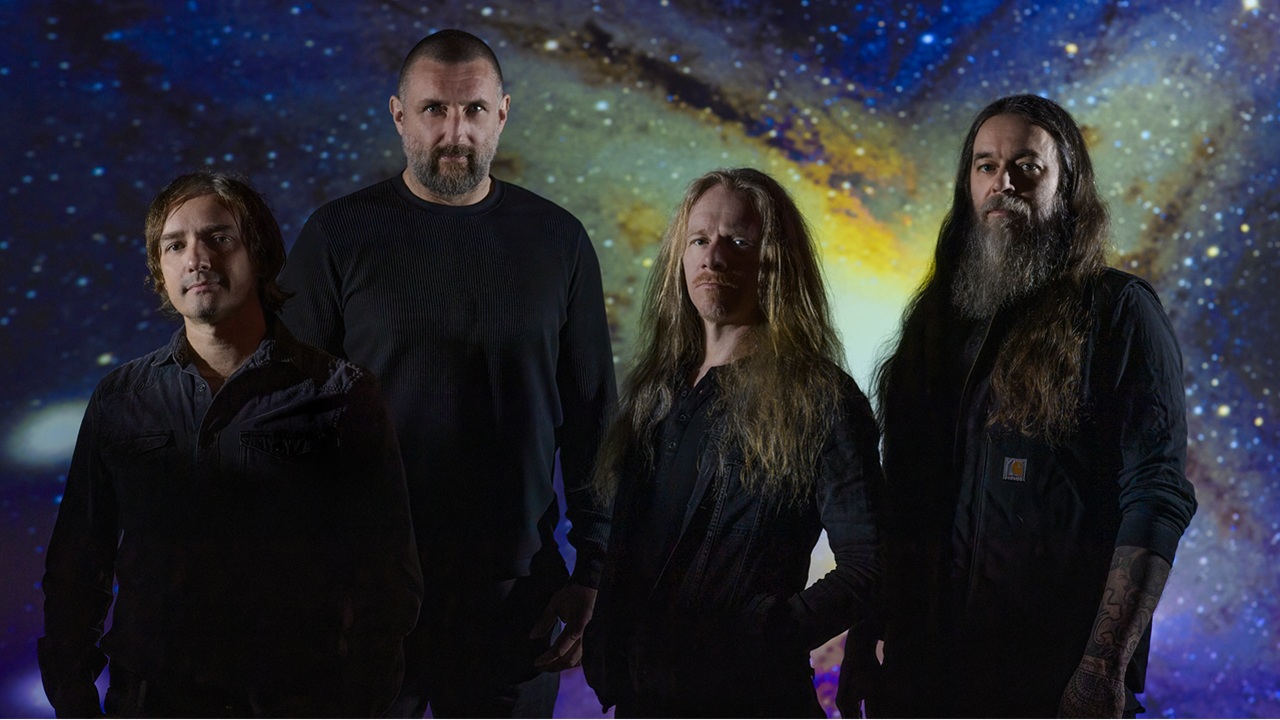Bees, ballads, Michael Bolton, and the heroically overblown return of Touch
While the return of American band Touch will be a delight for AOR fans, it’s also likely to see the return of people re-telling a 40-year-old story that the band wish would just fly away

Oh dear. Classic Rock has just gone and mentioned the ‘B’ word (or in this case should that be the ‘Bee’ word?), and for the first time during an otherwise lively conference call with Touch’s Mark Mangold and Craig Brooks the atmosphere cools.
We are recalling the potentially life-threatening moment in 1980 when, during their band’s performance at the inaugural Monsters Of Rock festival at Castle Donington, bass player Doug Howard took a swig from a bottle of beer, unaware that a bee had crawled into it. And of course it stung him on the tongue.
After a moment or two of a sudden and uncomfortable silence during our conversation, Mangold responds: “The reason we are being coy is that we worked so hard for many years to reach that point, and here we are all these years later talking about that bloody bee.”
Just as quickly, the awkwardness subsides when the keyboard player recalls stone-faced band manager Bruce Payne leaving the First Aid tent and declaring: "Hey everybody… the bee’s going to be just fine."

Touch were born out of a New York-based trio called American Tears that began by releasing a pair of guitar-less, keyboard-drenched albums in the mid-1970s.
“American Tears were a virtuoso band – we had bass solos and huge drum kits,” recalls Mangold, whose trademark was to perform handstands on his Hammond organ.
After support tours with the likes of Gentle Giant, John McLaughlin and Peter Frampton for American Tears’ third album, 1977’s Power House, they added co-frontman and guitarist Craig Brooks. When sales still didn’t materialise, Mangold, Brooks and drummer Glenn Kithcart brought in a new bass player, Doug Howard, and evolved into a new and far sleeker band that retained the proficiency of American Tears yet presented the songs in a more succinct manner.
Sign up below to get the latest from Classic Rock, plus exclusive special offers, direct to your inbox!
Mangold and Brooks reckon that Classic Rock is perhaps guilty of over-thinking things when we propose that in 1980 Touch unwittingly pioneered what Asia would achieve on a grander scale two years later: breaking down a progressive rock formula and rebooting it to sound modern, fresh and commercial.
“There was no plan,” Mangold says. “We were just doing our thing. All we wanted was to write cool songs.”
However it was achieved, Touch fashioned a gleaming, majestic style that added new shades of drama and colour to the tried and trusted accessibility of AOR and arena rock. After they captured the essence of this on a demo tape, heavyweight managers were queuing up to take them on.
“Bruce Payne had industry clout and our instinct drew us to him,” Mangold says.
Payne, who looked after Rainbow and later became Deep Purple’s long-term representative, signed Touch to Ariola Records, who put the band into the Atlantic Studio in New York. The producer they worked with was Englishman Tim Friese-Green, who went on to work closely with art-rockers Talk Talk.
“We knew of Tim due to his background with Queen; he had been an engineer to Roy Thomas Baker,” Brooks explains.
Recording the album that became Touch was a fairly painstaking process, and after a few days the band switched to a less expensive studio. The final song written by the band for their debut, Don’t You Know What Love Is, would become the band’s best-known tune
“We wanted a song to sum up the album in three and a half minutes, and suddenly there it was,” Mangold recalls. “We had no idea it would become a hit. It was Doug Morris, who became king of the world as boss of Universal Records, that picked that song as the first single. The band would have chosen When The Spirit Moves You.”
In the end, both songs went on to be released as singles, reaching the US Top 75 in America. The summer of 1980 saw Touch undertake a European tour with Rainbow that included that now often talked-about appearance at the Monsters Of Rock on a stellar bill that also included Judas Priest, Scorpions, April Wine, Saxon and Riot.
A version of Don’t You Know What Love Is ended up on a live album from the event. “My main memory of that day is that it was really, really muddy, and we didn’t bring boots,” Brooks says, laughing. “Backstage it felt a bit chaotic, but we went down okay with the crowd."

Returning home, budgets were approved and Todd Rundgren agreed to produce Touch’s second album. Regrettably, his heart wasn’t in the project and, despite it being remixed by Bob Clearmountain, the results simply didn’t match the audio fidelity of the debut. The tracks were shelved until being released in 1998 as part of a double set titled The Complete Works.
“It was the same with New England and some other bands he worked with at that time – we were there in his back garden with a very nice engineer, but Todd wasn’t there,” Mangold sighs. Touch disintegrated but “pretty much morphed into” the band behind the pre-mullet AOR kingpin Michael Bolton, who had been without a deal at the time.
“Although it had started out as a song for Touch, Craig, Michael and I all played on and we co-wrote Fool’s Game,” Mangold says of Bolton’s first hit single.
The members of Touch went on to play with Utopia, Edgar Winter and Roger Glover, among others. Mangold forged on with the melodic hard rock of Drive, She Said and The Sign, and also wrote for the likes of Bolton, Cher and Laura Branigan. Doug Howard wrote Utopia’s 1983 hit Feet Don’t Fail Me Now.
In 2018 Mangold reactivated American Tears. For the keyboard wizard, backed by Swedish musicians but billed as his former band, it was a surprise one-off appearance in 2014 at the late, lamented AOR event Firefest that set mental cogs turning.
“The fans going mad at Firefest served as reinforcement of a hunger for Touch – hey, that’s a great title for a song,” he says, laughing. Although very much aware of the bullshit-ometer, Mangold insists that the Touch reunion owes as much to pleasing the band’s older followers as attaining closure for themselves.
“It’s true, I promise,” he says. “I sent one song out to the guys, saying: ‘Could we at least do a teaser? It’ll take ten minutes of your time.’ And gradually the project snowballed. But we really wanted to do this for those that refused to let the band’s name die.”
Released 41 years after their debut, the long-awaited third Touch album is titled Tomorrow Never Comes. One thing’s for sure: there won’t be too many records like it in 2021. Tracks like Swan Song and Glass are heroically overblown – and that’s meant in a good way.
“Heroically overblown?” Mangold says, laughing. “Yeah, that’s exactly what we are.” So do you object to being called pomp rock? “Oh man, I’d have to look that up,” Brooks deadpans.
So is the new album Tomorrow Never Comes a convenient full stop for Touch, or a new beginning?
“Of course, it’s all down to sales,” Brooks responds. “But the sharing of this creative experience with my friends has been revelatory. It has shown that there is no end, only new roads to explore.”

Dave Ling was a co-founder of Classic Rock magazine. His words have appeared in a variety of music publications, including RAW, Kerrang!, Metal Hammer, Prog, Rock Candy, Fireworks and Sounds. Dave’s life was shaped in 1974 through the purchase of a copy of Sweet’s album ‘Sweet Fanny Adams’, along with early gig experiences from Status Quo, Rush, Iron Maiden, AC/DC, Yes and Queen. As a lifelong season ticket holder of Crystal Palace FC, he is completely incapable of uttering the word ‘Br***ton’.
